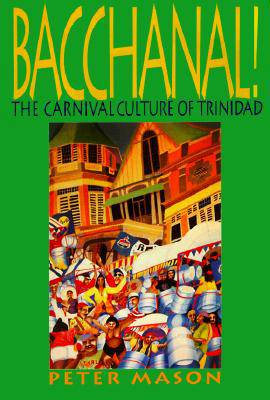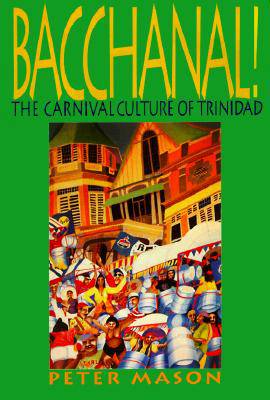
- Afhalen na 1 uur in een winkel met voorraad
- Gratis thuislevering in België vanaf € 30
- Ruim aanbod met 7 miljoen producten
- Afhalen na 1 uur in een winkel met voorraad
- Gratis thuislevering in België vanaf € 30
- Ruim aanbod met 7 miljoen producten
Zoeken
Omschrijving
On the days preceding Ash Wednesday, Trinidad erupts in an orgy of excitement, noise, color, and energy known as carnival. Other countries celebrate carnival, but none quite like Trinidad, where carnival is not just a two-day event; it is an all-year-round statement of identity Up to 100,000 Trinidadians, or almost 10 percent of the population, actively take part in carnival. Everyone talks and argues about it, some boycott it, but no one ignores it. Calypsonian SuperBlue has called it one of the most awesome moods in the world. Trinidadians have a word to describe it: Bacchanal!In this vivid and exuberant book, journalist Peter Mason looks at the past, present, and future of carnival, using not just personal observations and printed sources but also interviews with a wide variety of participants, including performers, pan tuners, designers, and stick fighters. Mason examines the three essential elements of Trinidadian carnival -- steelband, calypso, and masquerade. He also discusses recent developments like the growing influence of women and the effects of commercialism. As Mason demonstrates, carnival brings together nearly all aspects of Trinidad's cultural identity -- religion, music, language, humor, folk traditions, politics, gender roles, ethnic traditions, even food and sport. It also has an influence, outside the country, on how people view the island and as an export in itself. Mason weaves all these facets of carnival together to create a vibrant sense of the phenomenon itself -- its wit and its vulgarity, its sumptuous colors and heart-pounding noise, its competitiveness and spontaneity, the months of hard work to produce two days of exuberant self-abandonment -- allthe complex energies that lead to Bacchanal!
Specificaties
Betrokkenen
- Auteur(s):
- Uitgeverij:
Inhoud
- Aantal bladzijden:
- 195
- Taal:
- Engels
Eigenschappen
- Productcode (EAN):
- 9781566396639
- Verschijningsdatum:
- 26/01/1999
- Uitvoering:
- Paperback
- Formaat:
- Trade paperback (VS)
- Afmetingen:
- 151 mm x 230 mm
- Gewicht:
- 340 g

Alleen bij Standaard Boekhandel
+ 64 punten op je klantenkaart van Standaard Boekhandel
Beoordelingen
We publiceren alleen reviews die voldoen aan de voorwaarden voor reviews. Bekijk onze voorwaarden voor reviews.











